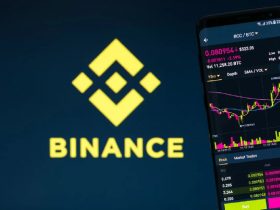Bancolombia Group, one of the leading banks in Latin America and the biggest bank in Colombia, is entering the crypto business with the launch of Wenia, a cryptocurrency exchange. Wenia seeks to disrupt Bitso’s and Binance’s dominance in the cryptocurrency exchange industry in Colombia, and offer a Colombian peso-pegged stablecoin as part of its asset portfolio.
Bancolombia Enters the Crypto Exchange Industry in Colombia With Wenia
Bancolombia, one of the largest banking companies in Colombia, launched Wenia, a cryptocurrency exchange that will seek to disrupt the cryptocurrency space in the country. Wenia aims to wrestle market share from Binance and Bitso, crypto incumbents in Latam and Colombia, by offering high levels of security linked to the financial group to newcomers in the space.
According to Juan Carlos Mora, President of Bancolombia Group, this is the culmination of almost 10 years of working on solutions that involve easing the adoption of digital assets and blockchain-based products in Colombia. Mora stated:
With Wenia we are strengthening financial inclusion while contributing to the continued development of the country’s digital economy.
The platform estimates it will reach 60,000 users in its launch year, given the potential of Colombia as the third nation with the most cryptocurrency adoption in Latam. Pablo Arboleda, CEO of Wenia, reinforced the relevance of offering a friendly platform to onboard new customers to crypto. “Our purpose is to help people connect with the crypto side in a more accessible, inclusive, and efficient way,” he stressed.
In addition to offering a newcomer-friendly experience linked to the high-security standards of Bancolombia, Wenia launched COPW, a Colombian peso stablecoin for its users to save in national currency using digital assets.
The exchange is designed to receive deposits in Colombian pesos, which will be transformed into COPW. The exchange also supports bitcoin, ether, USDC, and matic.
Bancolombia specified that the digital assets available on Wenia “are not securities or currencies,” and therefore “its issuance is not supported by any government.”







Leave a Reply